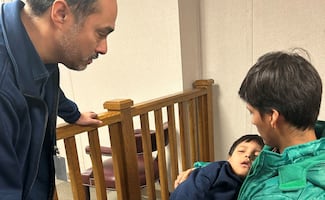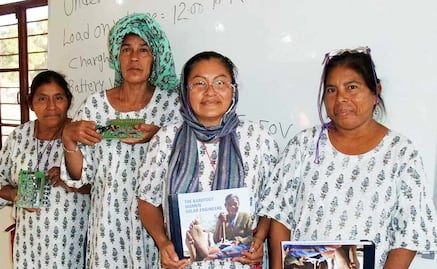Más Información

CDMX está lista en seguridad para recibir el Mundial: Pablo Vázquez; “hay estrategias para todos los riesgos”, dice en Con los de Casa

Ciencia defiende destitución de Romero Tellaeche; dice que no presentó informe de autoevaluación en los últimos tres años

Dos detenidos y presunto exceso de velocidad, lo que sabemos del descarrilamiento del Tren Interoceánico; se cumple un mes
Xóchitl Guadalupe Cruz
developed a water heater for low-income communities. She's the winner of the Women's Scientific Prize of the Institute of Nuclear Sciences, UNAM, together with teachers and students of the Universidad del Valle de Mexico Tuxtla Campus and of the University of Sciences and Arts of Chiapas (Unicach ).
The heater has a 65 liters capacity, it uses solar energy and it heats the water up to 70 Celsius degrees, according to a statement from the Universidad del Valle de Mexico ( UVM ).
Dr. Nein Farrera,
from the Universidad del Valle de Mexico Tuxtla Campus , and the group of students and teachers from both institutions helped the girl to finalize the project.
The researcher reported that over 70% of the population in Chiapas lives in poverty and over 30% lives in extreme poverty , and most of them live in regions such as the highlands of Chiapas , where temperatures are very low.
Therefore , Xóchitl Guadalupe Cruz developed the "Baño calientito" project, a water heater that uses recycled materials, with a 10 liters capacity.
For the construction process, Xóchitl requested the support of Dr. Neín Farrera , who formed a team with students from Energy and Sustainable Development of the UVM Tuxtla Campus, and students from the Unicach .
The heater costs MXN $700, but it's lower if it is considered that users can obtain several of the materials, either with waste, recycled materials, or materials from their work environment.
"The concept is self-construction, so detailed plans are being made so that people can easily make the heaters," said Farrera .
"Normally, to heat the water, firewood, gas or oil is used in the communities, which, in addition to the economic cost, emits toxic gases harmful to people and the environment, such as carbon dioxide, which has health consequences and contributes to the global warming , "said the professor.
gm
Noticias según tus intereses
[Publicidad]
[Publicidad]













